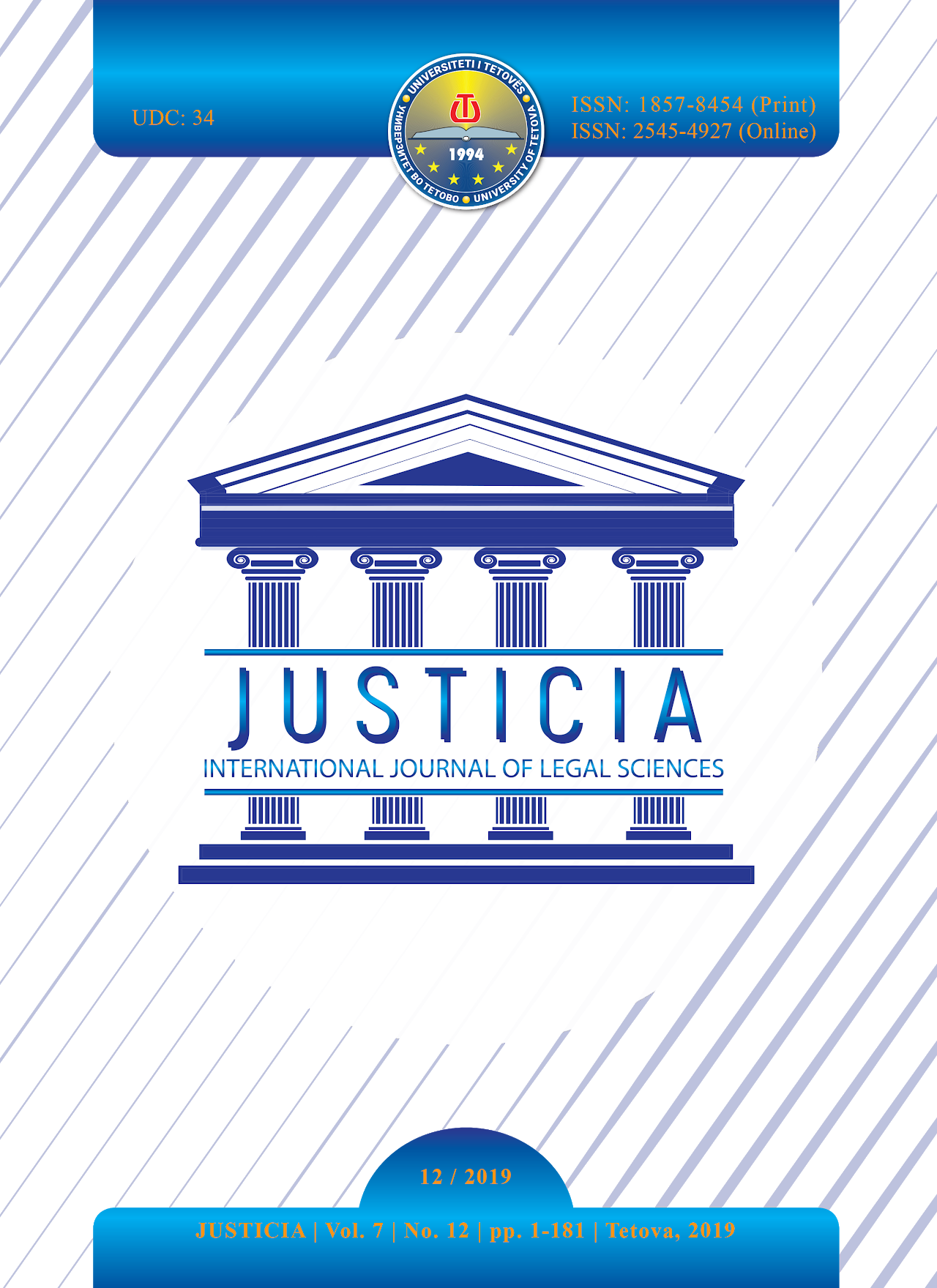THE LANGUAGE OF THE COMMUNITIES AS IMPORTANT ELEMENT OF COEXISTENCE AND STABILITY IN INTERETHNICAL RELATIONSHIP
THE LANGUAGE OF THE COMMUNITIES AS IMPORTANT ELEMENT OF COEXISTENCE AND STABILITY IN INTERETHNICAL RELATIONSHIP
Author(s): Shemshi SALAISubject(s): Language and Literature Studies, Law, Constitution, Jurisprudence
Published by: University of Tetova
Keywords: multi-ethnic society;minorities;language of minorities;international documents;Law;
Summary/Abstract: In multi-ethnic societies, from the past to the present, until nowadays minorities had problems with their rights in a multi-ethnic society, where the majority population was trying to integrate them into their societies through assimilation, which has now been an unhappy and conflicting situation among ethnic communities. Since the independence of the Republic of Macedonia1, the question of the use of the languages of national minorities has not been fully clarified. We are witnessing the ethnic intolerance, the political crises and the conflicting periods that have happened to us as a result of denial of some minority rights, and the right to use the languages of ethnic minorities, during a period which is very decisive for the future of the Republic of Macedonia. The right to use the language of minorities as one of the minority rights is a major obstacle for the final relaxation of interethnic relations in the Republic of North Macedonia, and with short pauses it returns permanently to the daily political agenda. The right to use the language of national minorities is part of the corpus of the rights of national communities and can be divided into two aspects of: a legal and political aspect. From a legal point of view, international documents containing the right of members of national (ethnic), religious or linguistic minorities, including the Covenant on Civil and Political Rights - Article 27; European Convention on Human Rights - Article 14; The Framework Convention on National Minorities; European Charter for Regional or Minority Languages, etc. The political aspect of addressing the issue of using native language by non-majority communities in a state exists in the way that, even today, some states treat the problem of minorities as two subtle ideas and that of integration and pluriculturalism. With integration, states that at no cost want to lose the homogeneity of the nation-state and for which there are no minority groups in their territories, 2 they all integrate into a homogeneous society in one nation, one culture, onelanguage. With the outgrowth of integration, the cultural, linguistic and other differences of minorities are lost, denying the existence of minority groups and gradually leading to their complete assimilation. On the other hand, we have countries with pluriculturalism, those states recognize the existence of minority groups. The question of the use of the native language is related to a chain of other rights in the field of culture. The nurturing of the historical tradition and heritage is directly related to the use of the native language, further, the democratization of the cultural and educational system through the opening of schools in the native language from basic to unusual, cultural arts associations, media from the written ones to the electronic, art, etc. The Republic of North Macedonia in 2008 adopted Law for the use of a language spoken by at least 20% of the citizens in the Republic of North Macedonia and in the local self-government units, who did not indicate what language groups they are referring to, but they indicate a percentage of 20% in the territories and units of local self-government where the ethnic communities pass that percentage. Determination of the threshold of 20% gives the element of objectivity, that is, the zet members who cross the specified threshold, automatically follow the rights to use the language, according to the law, and in the same law is given the possibility in the units of local self-government where a hundred ethnic minorities are less than 20% decided by the councils of those local self-government units to use those languages in their territory as a third official language.3 The provisions of the Law on the use of a language spoken by at least 20% of the citizens in the Republic of North Macedonia and in the units of local self-government are not fully operational, as a result of the lack of conditions and good will by the policy. The Republic of Macedonia has adopted a new Law on the Use of the Languages of the Communities by which it is complementary and more perfect in terms of the right to use the language of the communities, but the same although it has been passed and has been voted twice in the Assembly of the Republic of Macedonia, force as a result of politics. Considering that the Republic of North Macedonia has its policy in the direction of Euro-Atlantic integration, in the last years, it is working very intensively in solving minority issues, including the right to use the languages of communities in all spheres and levels of functioning of the state, I hope to fully solve this issue which is one of the key elements for the identification of a national and cultural community and interethnic stability.
Journal: JUSTICIA – International Journal of Legal Sciences
- Issue Year: 7/2019
- Issue No: 12
- Page Range: 153 - 160
- Page Count: 8
- Language: English

